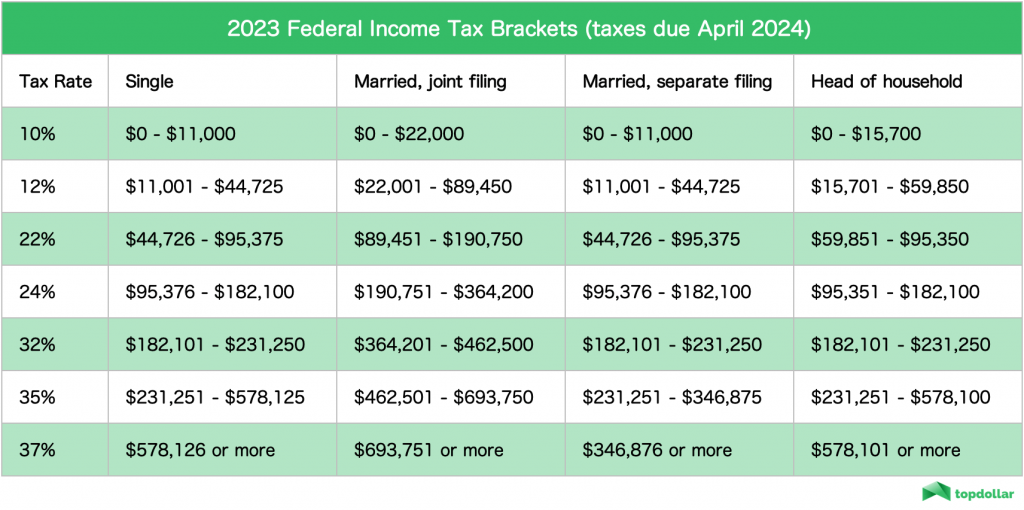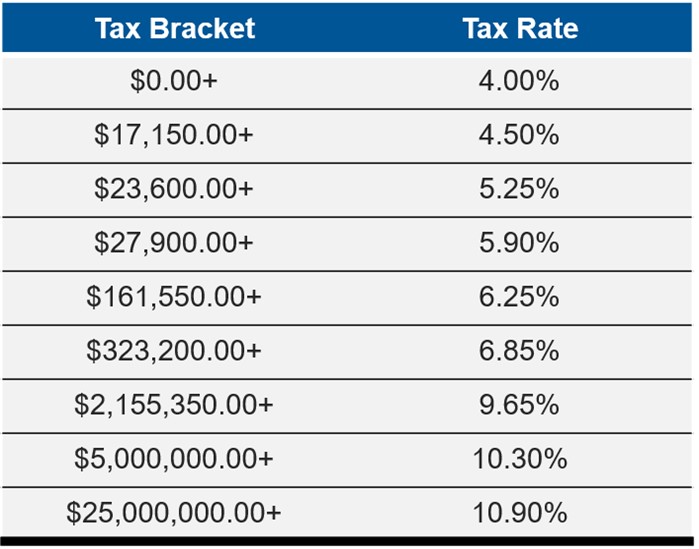Understanding New York State's income tax rate structure is crucial for anyone earning income within the state. With its progressive tax system, NYS income tax rates vary significantly based on income brackets, meaning taxpayers must be aware of their specific financial situation to ensure proper compliance. In 2023, the state has introduced several adjustments to these brackets, impacting millions of residents. Whether you're a full-time employee, freelancer, or small business owner, staying informed about these rates can help you manage your finances more effectively and avoid costly mistakes.
As the economic landscape continues to evolve, the NYS income tax rate has become a hot topic for financial planning and budgeting. The state's Department of Taxation and Finance regularly updates its guidelines to reflect changes in the economy, cost of living, and federal tax laws. This means residents must stay updated on the latest developments to avoid penalties or unexpected tax liabilities. Understanding how these rates affect your personal financial situation is not only about compliance but also about maximizing your financial health.
For those who are new to navigating the complexities of state taxes, or even seasoned professionals looking for the latest updates, this article serves as a comprehensive guide. We will delve into the intricacies of the NYS income tax rate, provide insights into how it is calculated, and offer practical tips for optimizing your tax strategy. Whether you're a resident, a business owner, or someone planning to move to New York, this guide will help you stay informed and prepared.
Read also:Discover The Beauty Of Elizabeth Gamble Garden A Hidden Gem In Palo Alto
What Are the Current NYS Income Tax Rates?
The NYS income tax rates for 2023 reflect a progressive tax structure, meaning the more you earn, the higher the tax rate you are subject to. This system is designed to ensure that those with higher incomes contribute proportionally more to the state’s revenue. Below is a breakdown of the current rates:
- 4% for income up to $8,500
- 4.5% for income between $8,501 and $11,700
- 5.25% for income between $11,701 and $13,900
- 5.97% for income between $13,901 and $21,600
- 6.29% for income over $21,600
These brackets apply to single filers, while married couples filing jointly and heads of households have slightly different thresholds. It's important to note that these rates are subject to change annually, so staying updated with the latest information is essential.
How Does the NYS Income Tax Rate Impact Residents?
The impact of the NYS income tax rate varies depending on an individual's financial situation. For low-income earners, the tax burden is relatively light, allowing them to retain a larger portion of their earnings. However, as income increases, so does the tax liability, which can significantly affect disposable income. This is particularly relevant for high-income earners and business owners who may need to implement advanced tax strategies to mitigate their obligations.
Residents should also consider how the NYS income tax rate interacts with federal taxes. While state taxes are deductible on federal returns, recent changes in tax laws have placed caps on these deductions, potentially increasing the overall tax burden for some taxpayers. Understanding these interactions is crucial for effective financial planning.
Who Needs to Pay the NYS Income Tax Rate?
Anyone earning income within New York State is required to pay the NYS income tax rate, regardless of residency status. This includes not only full-time employees but also freelancers, contractors, and business owners operating within the state. Even those who work remotely for out-of-state companies may be subject to NYS taxes if they perform their duties while physically present in the state.
It's important for taxpayers to determine their residency status, as this can affect the amount of tax they owe. Part-year residents, for example, may only be required to pay taxes on income earned while residing in New York, while non-residents may only owe taxes on income sourced from within the state.
Read also:Ripleys Husband Unveiling The Mystery Behind The Iconic Character
What Factors Influence the NYS Income Tax Rate?
Several factors influence the NYS income tax rate, including economic conditions, legislative changes, and federal tax laws. The state government regularly reviews these factors to adjust tax brackets and rates accordingly. Economic growth, inflation, and unemployment rates all play a role in determining the appropriate level of taxation needed to fund essential services and infrastructure.
Additionally, legislative initiatives aimed at addressing income inequality or supporting specific industries can lead to changes in the tax structure. For example, temporary surcharges or credits may be introduced to stimulate certain sectors or provide relief during economic downturns. Understanding these influencing factors can help taxpayers anticipate potential changes and plan accordingly.
Why Is It Important to Understand the NYS Income Tax Rate?
Understanding the NYS income tax rate is vital for several reasons. First, it ensures compliance with state tax laws, helping taxpayers avoid penalties and interest charges. Second, it allows individuals and businesses to make informed financial decisions, such as budgeting, investing, and retirement planning. Lastly, it fosters a sense of civic responsibility by contributing to the state's revenue, which funds public services and infrastructure.
Taxpayers who take the time to understand the NYS income tax rate can also identify potential deductions and credits that may reduce their overall tax liability. This proactive approach not only saves money but also promotes financial stability and security.
How Can You Optimize Your NYS Income Tax Rate Strategy?
Optimizing your NYS income tax rate strategy involves several steps, starting with accurate record-keeping and careful planning. Begin by tracking all sources of income, including wages, investments, and side hustles, to ensure nothing is overlooked. Next, explore available deductions and credits, such as those for education expenses, dependent care, and charitable contributions.
For business owners, consider implementing strategies such as incorporating, deferring income, or accelerating deductions to minimize taxable income. Additionally, consulting with a tax professional can provide valuable insights and ensure compliance with all applicable laws and regulations. Remember, the goal is not to avoid taxes altogether but to pay only what is legally required.
What Changes Can We Expect in the NYS Income Tax Rate?
While no one can predict the future with certainty, historical trends and current legislative discussions can provide clues about potential changes in the NYS income tax rate. For example, ongoing debates about income inequality and the need for increased revenue may lead to adjustments in tax brackets or the introduction of new surcharges. Additionally, federal tax reforms could influence state-level decisions, particularly regarding deductions and credits.
Taxpayers should remain vigilant and stay informed about these potential changes by regularly checking updates from the New York State Department of Taxation and Finance. Subscribing to newsletters, following reputable financial news sources, and consulting with tax professionals can help ensure you are always prepared for any changes that may affect your financial situation.
Conclusion: Staying Informed About the NYS Income Tax Rate
In conclusion, the NYS income tax rate is a critical component of financial planning for anyone earning income within the state. By understanding the current rates, how they impact your personal finances, and what factors influence them, you can take proactive steps to optimize your tax strategy and ensure compliance. Whether you're a resident, business owner, or someone considering a move to New York, staying informed about the NYS income tax rate is essential for financial success and stability.
Remember, the tax landscape is constantly evolving, so staying updated with the latest information is key to avoiding costly mistakes and maximizing your financial health. By taking the time to understand and plan for the NYS income tax rate, you can achieve peace of mind and financial security for the future.
Table of Contents
- What Are the Current NYS Income Tax Rates?
- How Does the NYS Income Tax Rate Impact Residents?
- Who Needs to Pay the NYS Income Tax Rate?
- What Factors Influence the NYS Income Tax Rate?
- Why Is It Important to Understand the NYS Income Tax Rate?
- How Can You Optimize Your NYS Income Tax Rate Strategy?
- What Changes Can We Expect in the NYS Income Tax Rate?
- Conclusion: Staying Informed About the NYS Income Tax Rate


